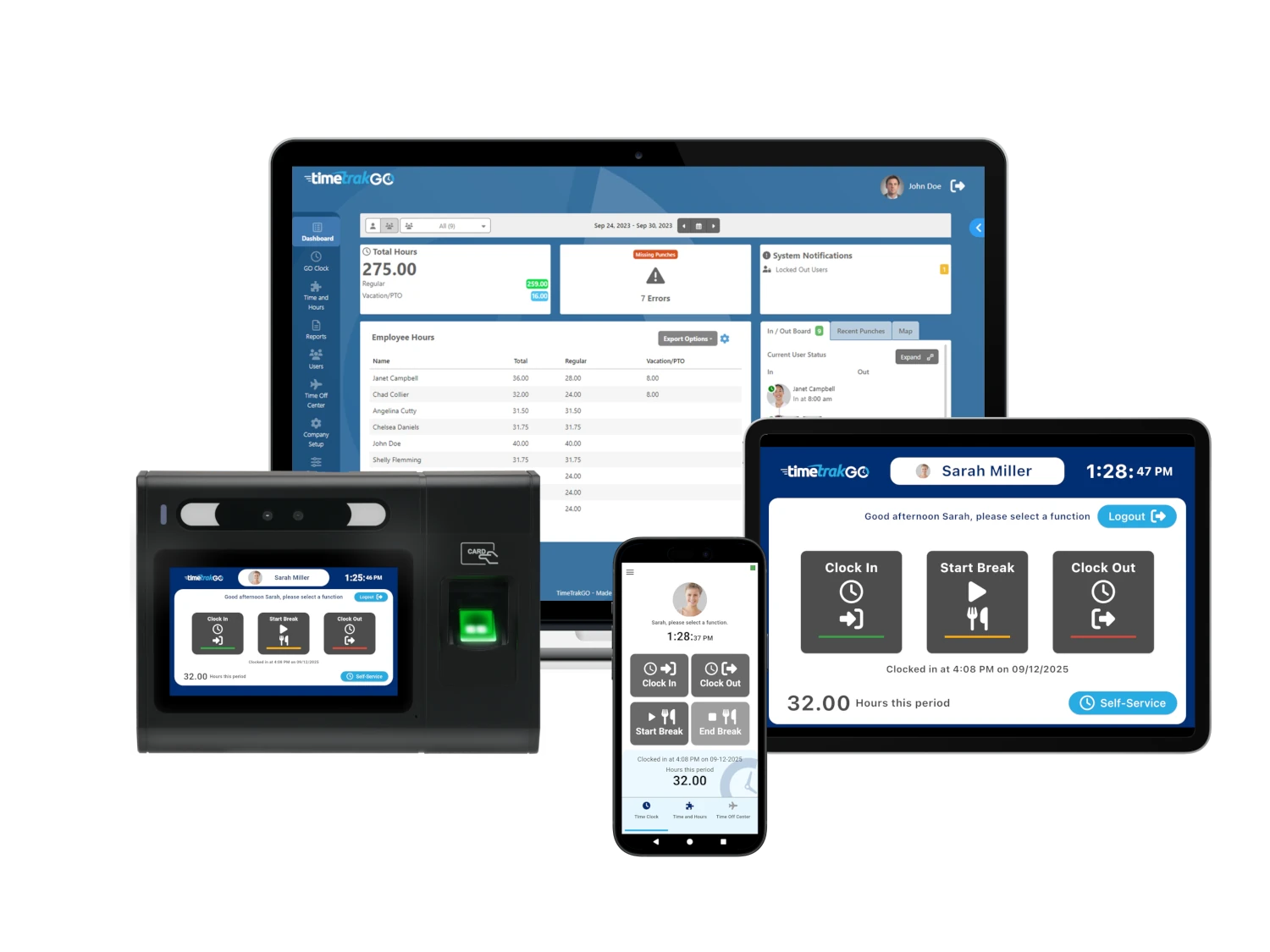Are you struggling with managing your employees’ hours and wages? Do you often deal with forgotten clock-outs or inaccuracies in payroll? These issues can be frustrating and time-consuming, but they are easy to prevent.
In this blog post, we will discuss strategies for preventing forgotten clock-outs. You will have step-by-step instructions for addressing a forgotten clock-out. And we will cover the benefits of the accurate tracking of employee hours and wages.
By implementing these strategies, and staying up-to-date with labor laws and regulations. Employers can ensure fair pay for employees. This will improve productivity, and avoid expensive penalties and lawsuits. Let’s dive in!
Prevention Is Key
Preventing forgotten clock-outs is crucial for both the employer and the employee. By implementing effective strategies, employers can ensure accurate employee hours. They avoid unnecessary wage disputes. Here are some strategies to prevent forgotten clock-outs:
Automatic Clock-out Systems
One way to prevent forgotten clock-outs is to put in place automatic clock-out systems. These systems clock out employees after a specified period of inactivity.
With automatic clock-out systems, employers can avoid disputes over unpaid wages. They ensure that employees receive accurate compensation for their work.
Reminders for Employees
Another strategy for preventing forgotten clock-outs is to provide reminders for employees. Employers can do this through email or text message reminders. Put in place clock-in and clock-out alerts on an employee’s phone or computer.
Provide reminders to ensure that they are aware of their clock-in and clock-out times. This can prevent accidental forgetfulness.
Clear Communication and Expectations
Employers should communicate their expectations about clock-in and clock-out times to employees. They must guarantee that employees understand the consequences of forgetting to clock out.
By setting clear expectations and communicating with employees, employers can prevent forgotten clock-outs.
Benefits of Preventing Forgotten Clock-Outs
Preventing forgotten clock-outs has many benefits for both the employer and the employee. For employers, it helps to ensure accurate employee hours and avoid wage disputes. It also helps to increase productivity by minimizing wasted time.
It helps employees receive the right compensation for their work. It reduces stress and anxiety related to wage disputes or missed paychecks.
What to Do When an Employee Forgets to Clock Out
When an employee forgets to clock out, it is important to address the issue at once. Here are some steps to take when an employee forgets to clock out.
Verifying Employee Hours and Adjusting Pay
The first step is to verify the employee’s hours worked for the day. Employers can do this by checking the employee’s timecard or time-tracking system.
After verifying the hours, the employer can adjust the employee’s pay to reflect them. This may include adding in any missed hours or subtracting any extra hours that were not worked.
Addressing the Issue
It is important to address the issue at once. This will avoid any potential misunderstandings or disputes. Employers should communicate with the employee about the forgotten clock-out.
They must explain what steps they are taking to adjust their pay. Addressing the issue at once helps maintain a positive and productive work environment.
Handling Repeated Instances
It is important to have fair and consistent techniques for addressing the issue. This may involve disciplinary action, such as a written warning or suspension.
Establish clear communication about the consequences of repeated instances of forgotten clock-outs. Employers must enforce their policies in a fair and consistent manner.
Tracking Employee Hours and Wages
Tracking employee hours and wages is a critical aspect of managing a business. It keeps the business in compliance with labor laws.
Manual tracking of employee hours is one option, but it can be time-consuming and prone to errors. Automated systems for tracking employee hours and wages can help to:
- Streamline the process
- Save time
- Reduce errors
Employers must stay up-to-date with labor laws and regulations related to employee wages.
Benefits of Tracking Employee Hours and Wages
By tracking employee hours, employers can identify areas where productivity needs improvement. They may find they need to reduce overtime by employing extra staff.
Methods for Tracking Employee Hours
Manual tracking involves employees recording their hours on a timesheet or sign-in sheet. This method can be effective for small businesses with a limited number of employees. It can be time-consuming and prone to errors.
Use automated systems like electronic time clocks or time-tracking software. It can simplify the process of monitoring employee hours. of tracking employee hours.
These systems can reduce errors and save time. They free up employers to focus on other aspects of running their business.
Staying Up-to-Date With Labor Laws and Regulations
Employers must stay up-to-date with labor laws and regulations related to employee wages. Failure to follow them can result in expensive penalties and lawsuits. They include:
- Minimum wage laws
- Overtime laws
- Record-keeping requirements
Employers should review their payroll practices often. This helps to keep them in compliance with all relevant laws and regulations.
Labor laws associated with paying fair wages are in place. They protect employees from exploitation by employers. The Fair Labor Standards Act (FLSA) is a federal law. It governs employees in the private and public sectors. It sets:
- Minimum wage
- Overtime pay
- Recordkeeping
- Child labor standards
The FLSA establishes a federal minimum wage, currently set at $7.25 per hour. Employers must pay non-exempt employees overtime pay for hours worked over 40 hours.
They must keep accurate records of employee hours worked and wages paid. It’s important for employers to understand and follow these labor laws. It helps them avoid legal issues and ensure fair pay for their employees.
Streamline Employee Hour and Wage Management With Time Trak
Tracking employee hours and wages is essential for employers. It helps them manage their workforce. It ensures fair compensation for their employees. Employers can use various tracking methods to prevent forgotten clock-outs and inaccurate pay.
Time-tracking software can simplify this process. It provides a centralized system for managing employee time and attendance.
With Timetrak’s interface and customizable features, employers can track employee hours. They can generate accurate payroll reports, and streamline their workforce management.
Don’t let forgotten clock-outs lead to inaccurate pay. Contact Timetrak today.





